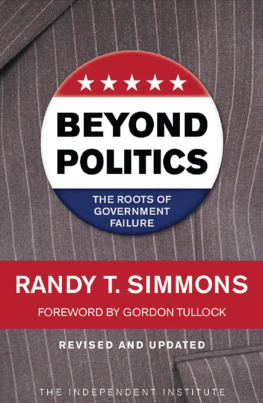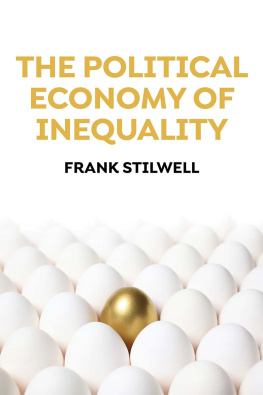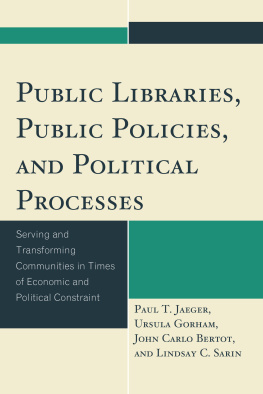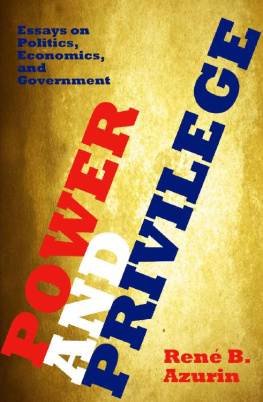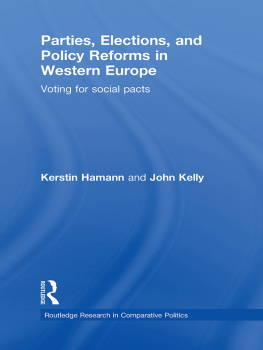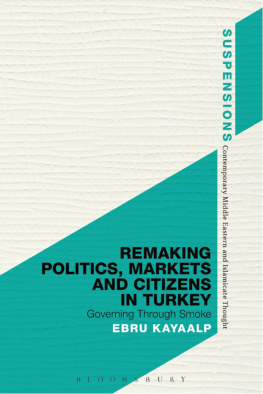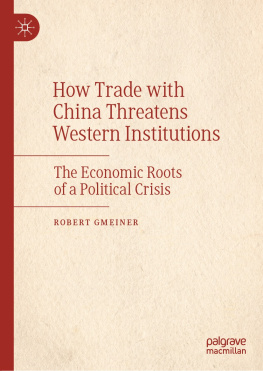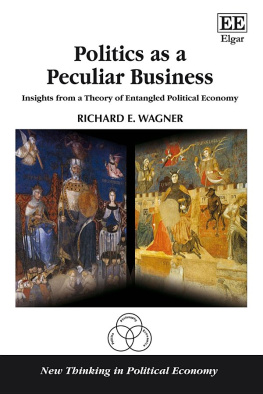In Praise of Beyond Politics
Beyond Politics is a superb, thought-provoking and penetrating book, analyzing the real, as opposed to the presumed, effects of government regulation. It effectively turns the orthodox view that government regulation corrects private market failures on its head. The book deserves to be read by all serious students of public policy.
Sam Peltzman, Ralph and Dorothy Keller Distinguished Service Professor of Economics Emeritus, University of Chicago
Beyond Politics is a lively book that very effectively analyzes the very real phenomena of government failure.... The author makes a significant contribution by dealing informatively with the side of the matter that welfare economics tends to neglect and makes a vigorous case for the view that government intervention in the workings of the market should never be taken lightly.
William J. Baumol, Director, C. V. Starr Center for Applied Economics, New York University
Beyond Politics is a major contribution to informed comment. The book is so well written and the subject is so important and exciting that a great many people will find it very entertaining even if they do learn while reading it. We can welcome the book as a major step forward in understanding the dynamics of government and markets, and how both affect us all.
Gordon Tullock, University Professor Emeritus of Law and Economics and Distinguished Research Fellow, George Mason University
Public dissatisfaction with government by now seems a nearly inescapable part of our age of instant communications and an integrated world economy. Throughout the world, publics are looking for a new conception of government and its role. Happily, there is a whole new theory that fills the bill, which economists call public choice, and which is clearly and persuasively presented in the excellent book, Beyond Politics.
Robert L. Bartley, Pulitzer Prize winner and late Editor,
The Wall Street Journal
Simmons makes a lucid case for a market economy and limited constitutional government. Beyond Politics is the most effective introduction to this topic that is now available.
William A. Niskanen, Chairman Emeritus and Distinguished Senior Economist, Cato Institute; former Chairman, Presidents Council of Economic Advisors
Beyond Politics is a solid work in all respects. Truly a praiseworthy book, it is well written and carefully organized, providing a rich contrast between orthodox notions of democracy and the public choice alternative.
Richard E. Wagner, Hobart R. Harris Professor of Economics,
George Mason University
Beyond Politics is a comprehensive and up-to-date account of the failures of U.S. governmental policies, with important suggestions for how to correct them. The book is a thorough introduction to what is wrong with Americas political system with remedies for its failure.
Dennis C. Mueller, Professor of Economics Emeritus,
University of Vienna
In Beyond Politics, [he] has written an accessible and compelling account of the major issue of our timethe intersection of politics and the market. With great care [he] first develops and then demolishes the standard arguments about market failure that are commonly taken to justify the creation of a vast government bureaucracy. [He] shows how the forces of self-interest are given a new destructive range in political and administrative settings that allow interest groups, politicians and bureaucrats to enhance their own position at the expense of the public at large. And [he] illustrates [his] basic point with countless well-chosen examples of bureaucratic misdeeds that should make even the most ardent defenders of big government question the soundness of the ever-expanding welfare state.
Richard A. Epstein, James Parker Hall Distinguished Service
Professor of Law Emeritus, University of Chicago; Laurence A. Tisch
Professor of Law, New York University
The best primer on political reality, Beyond Politics will revolutionize your thinking with its analysis of government and the political system from a realistic perspective.
Pete DuPont, former Governor of Delaware
We have needed an answer to the question often asked: Can you refer me to a single book that will explain in simple language what Public Choice is all about? Beyond Politics meets this need superbly. The author [has] assembled the required understanding of both economics and politics that allows [him] to get straight to the important elements involved.
James M. Buchanan, Nobel Laureate in Economic Sciences;
Distinguished Professor Emeritus, George Mason University
Beyond Politics is a cogent and readable book examining what public choice is all about.
Norman J. Ornstein, Resident Scholar, American Enterprise Institute
Simmons has done an outstanding job of illuminating the inefficient allocation of public resources in the face of politicians, bureaucracies and interest groups. Beyond Politics explains how and why the forces work in a constant struggle among these three elements in the continuum of public policy battles and why bureaucratic institutions are unable to deliver on their promises at the intersection of politics and economics.
James C. Miller, III, former Chairman, Federal Trade Commission; former Director, Office of Management and Budget
Economics is full of people who know that markets work, but seem amazed that politicians are not following their advice. The author of Beyond Politics makes the important point that intervention in the face of market failure does not necessarily lead to a better state of affairs. [His] insight that government can fail too, and fail in ways that are subject to systematic analysis, is a most valuable contribution to the debate over public policies.
Glenn C. Loury, Merton P. Stoltz Professor of the Social Sciences and Professor of Economics, Brown University
Beyond Politics is so well written and interesting that it appeals even to those, like me, who may disagree with several of its arguments.
Mancur Olson, Jr., late Distinguished Professor of Economics, University of Maryland
There is a need for a public philosophy that would provide a framework for discussion of appropriate spheres for markets and government. One such philosophy might begin with recognition of the desirable features of markets and also of the possibilities of market failure. But it would build on material such as is in this book to identify the risks of government failure, that is, the possibility that government intervention may well make things worse. Such a philosophy could provide a basis for communication and discourse and a framework for reasoned disagreement between people with diverse points of view about the goals of public life. The seeds of such a public philosophy are to be found in this book.
American Political Science Review
The book is well written . That is why this book should be highly recommended for a course in economics at the junior or senior level. In fact, a curriculum in economics that does not include the subject matter covered by Simmons will be, at least, questionable in its quality. Those who do read the book will come out with what may be considered the most important lesson of Beyond Politics: Governments rely on force, and when force is wielded for political purposes the government becomes the worst violator of individual rights. Such lessons in liberty and freedom are badly needed in contemporary American economic education. This book fills this void more than satisfactorily.
Public Choice
Beyond Politics is a valuable analysis, making a cogent case for thoroughly rethinking what government should do. The book deserves wide reading.

